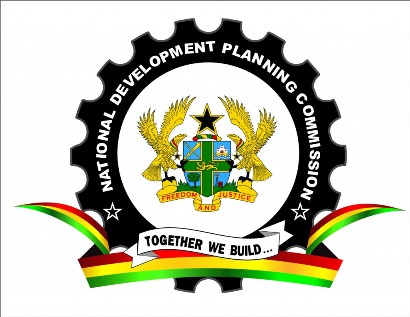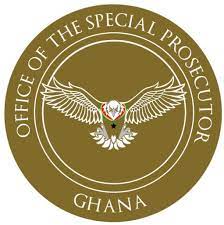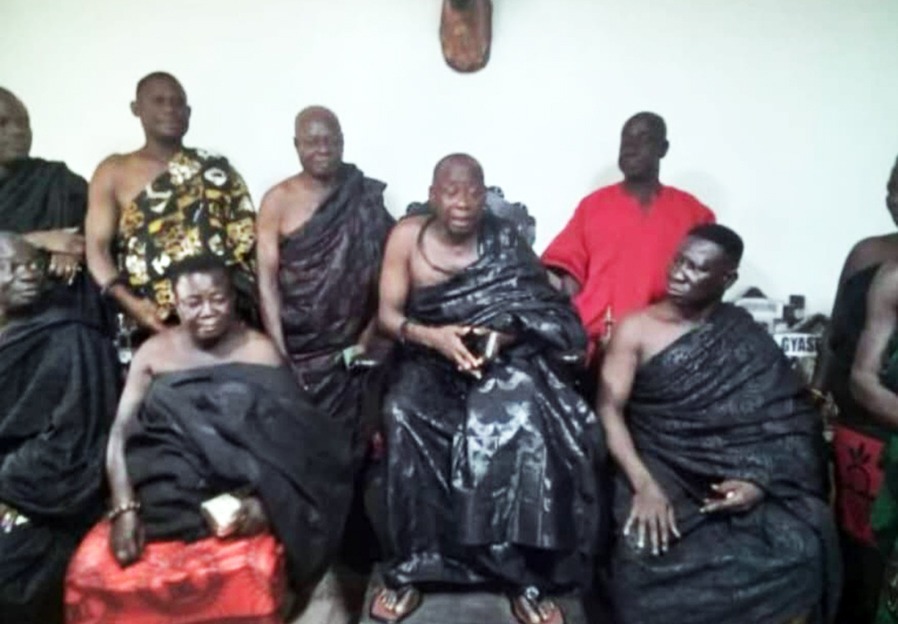
By Juliet ETEFE ([email protected])
…as government targets fiscal discipline and investment-led recovery
Government has unveiled a GH¢302.5 billion 2026 Budget themed “Resetting for Growth, Jobs and Economic Transformation,” aimed at consolidating macroeconomic stability while unlocking investments in infrastructure, agriculture, energy and social sectors to create sustainable jobs.
Presenting the Budget Statement and Economic Policy in Parliament, the Minister for Finance, Cassiel Ato Forson said the 2026 fiscal framework marks a transition from economic stabilisation to a growth and transformation phase.
He added that this will be anchored on strong revenue mobilisation, prudent spending, and targeted investments in productive sectors.
The Minister noted that his budget is about resetting the economy for shared prosperity, focusing on jobs, industrialisation and inclusive growth while safeguarding the stability we have achieved.
“This Budget builds on the stability of 2025 and channels it into action that delivers: more jobs; better infrastructure; stronger industries; and better public services.
This Budget is about building on the foundation we have laid, turning stability into opportunity, and opportunity into prosperity,” he said.
Fiscal framework
The total expenditure for the 2026 fiscal year is estimated at GH¢302.5 billion, representing 18.9 percent of GDP, while total revenue and grants are projected at GH¢268.1 billion.
“The overall fiscal balance on commitment basis is projected at a deficit of GH¢34.4 billion, equivalent to 2.2 percent of GDP. The corresponding primary balance records a surplus of GH¢23.3 billion, representing 1.5 percent of GDP, in line with our medium-term fiscal target.
On a cash basis, the overall deficit is projected at GH¢64.2 billion, equivalent to 4.0 percent of GDP, while the primary deficit stands at GH¢6.5 billion (0.4 percent of GDP). The cash deficit of GH¢64.2 billion will be financed from a balanced mix of foreign and domestic borrowing sources,” he stated.
According to the Ministry, the fiscal outlook is consistent with Ghana’s International Monetary Fund (IMF) programme commitments and is designed to maintain debt sustainability while supporting real sector growth.
Revenue measures
The 2026 Budget introduces a comprehensive reform of the tax regime to improve compliance and ease the burden on households and businesses.
Key among the measures is the abolition of the COVID-19 Health Recovery Levy, a slight reduction in the effective VAT rate, and an increase in the VAT registration threshold to relieve pressure on small and medium enterprises.
The government is also extending the zero-rating for locally manufactured textiles, a move expected to boost local industry and employment.
In addition, the Budget emphasises stronger enforcement under the Medium-Term Revenue Strategy, targeting improved tax arrears recovery, streamlined exemptions, and enhanced use of digital tools to track e-commerce and cross-border trade.
“The new VAT reforms will:
- abolish the COVID-19 Health Recovery Levy;
- abolish the decoupling of the GETFund and NHIL levies from the VAT tax base, allowing both levies to be subject to input tax deductions;
- abolish VAT on reconnaissance and prospecting of minerals;
- reduce the effective VAT rate from 21.9% to 20%;
- raise the VAT registration threshold from GH¢200,000 to GH¢750,000; and
- extend the VAT zero-rating on the supply of locally manufactured textiles to 2028,” he stated.
The reforms are projected to push domestic revenue by strengthening fiscal buffers and reducing reliance on borrowing.
Debt and financial management
To rebuild investor confidence, government announced a revival of the Ghana Sinking Fund, alongside measures to reprofile domestic debt, conduct bond buybacks, and restore benchmark bond issuance.
These initiatives, the Minister explained, will extend maturities, manage refinancing risks, and gradually return Ghana to a moderate risk of debt distress.
The fiscal operations will be supported by a more transparent reporting framework and the digitisation of public financial management systems.
Infrastructure and the ‘Big Push’
A flagship feature of the 2026 Budget is the Big Push Infrastructure Programme, a multi-year US$10 billion initiative designed to expand strategic roads, bridges, and digital and energy infrastructure.
“With an envelope of the cedi equivalent of US$10 billion, this initiative is translating fiscal stability into physical progress, modernising roads, bridges, ports, and logistics corridors that drive inclusive growth, productivity, and job creation.
“The Big Push embodies the spirit of our 2026 Budget theme, “Resetting for Growth, Jobs and Economic Transformation” by ensuring that infrastructure becomes not just an expenditure line, but a national growth engine for transformation.
“To strategically open up the country, linking national and regional capitals, we are allocating GH¢30.0 billion in 2026 for the Big Push Infrastructure Programme for strategic roads and bridges,” he stated.
The government said infrastructure will be a key enabler of productivity, with strong linkages to agriculture, trade, and regional integration.
Agriculture and food security
Agriculture remains at the heart of the 2026 development agenda. The government has allocated GH¢245 million for food security and agro-industrial programmes, GH¢828 million for 1,000 km of agricultural enclave roads, and GH¢690 million to operationalise Farmer Service Centres that will provide mechanisation and input support.
“Mr. Speaker, to scale-up food security and agro-industrial value-chains, covering Feed Ghana, grains and vegetables, and the Nkoko Nkitinkiti livestock programme, among others, we are providing GH¢245 million in 2026 to the Ministry of Food and Agriculture,” he stated.
A major highlight is the establishment of a GH¢6.9 billion Oil Palm Industrialisation Programme to promote value addition, out-grower schemes, and agro-processing.
“To transform our “red gold” into a true engine of rural prosperity, export growth, and job creation, we are establishing a dedicated GH¢6.9 billion Oil Palm finance window to support the implementation of the National Policy on Integrated Oil Palm Development (2026–2032). An initial rollout support will be provided in 2026 for nurseries, out-growers, land-bank activation, long-term crop financing, smallholder inclusion, and value addition through local processing,” he stated.
The sectoral focus aims to boost productivity, ensure food self-sufficiency, and generate rural employment, especially for the youth.
Energy and Industrialisation
The energy sector received one of the largest allocations in the Budget, with GH¢15.2 billion earmarked for energy sector shortfalls and GH¢4.8 billion for legacy Independent Power Producer (IPP) arrears.
Additionally, GH¢2 billion has been set aside for rural electrification projects (Phase I) to expand access and support industrial growth.
The government pledged to implement structural reforms in the power sector to improve efficiency, enhance revenue collection, and reduce technical losses, while investing in renewable energy solutions to diversify Ghana’s energy mix.
Social protection and human development
Social spending remains a cornerstone of the 2026 Budget, with continued support for education, health and social protection programmes.
The Budget sustains funding for Free SHS, school feeding, and teacher recruitment, while directing school feeding caterers to use locally produced food to support Ghanaian farmers.
The government also reaffirmed its commitment to completing ongoing health infrastructure projects and strengthening community health delivery systems.
Despite fiscal constraints, the Finance Minister stressed that protecting the vulnerable remains a priority.
Education and health
The 2026 Budget makes a major push toward strengthening Ghana’s education sector, with GH¢33.3 billion allocated to the Ministry of Education and an additional GH¢9.9 billion for GETFund.
Government has also set aside GH¢4.2 billion to implement Free SHS and GH¢1.1 billion under the Ghana Secondary Learning Improvement Programme (GSLIP) to end the double-track system.
Other major provisions include GH¢537 million for the “No-Fee-Stress” policy, GH¢25 million for Free Tertiary Education for Persons with Disabilities, and GH¢3 billion for textbooks, school buses, desks and other learning materials.
The budget further commits GH¢2 billion for the construction of 200 new JHSs, 200 primary schools, 200 kindergartens and teacher bungalows, alongside GH¢157 million for Capitation Grants, GH¢1.98 billion for School Feeding, GH¢292 million for free sanitary pads, GH¢207 million for teacher trainee allowances and GH¢169 million for BECE registration.
In the health sector, Government has ringfenced GH¢9 billion for NHIS claims, essential medicines, vaccines and Free Primary Healthcare following the uncapping of NHIL.
A further GH¢2.3 billion has been allocated to the Ghana Medical Care Trust (MahamaCares) to support patients suffering from chronic illnesses such as cancer, hypertension, diabetes and kidney disease. To strengthen the health workforce, GH¢474 million will go to nursing trainee allowances. The Budget also commits GH¢600 million to construct three new regional hospitals, GH¢79 million to upgrade seven existing facilities, and GH¢100 million to complete ten Agenda 111 projects.
Additional social and human capital interventions include GH¢1.1 billion for LEAP, GH¢401 million for the Women’s Development Bank, GH¢170 million for the National Apprenticeship Programme, and targeted digital and SME support totalling GH¢260 million through the National Coders Programme and Adwumawura initiative.
Economic outlook
The economy is projected to grow by 4.8% in 2026, driven by growth in agriculture, industry, and services. “Inflation expected to ease toward 8% (within a 6–10% band), supported by improved food supply and monetary discipline.
The Minister emphasised that sustaining stability, attracting private investment, and accelerating job creation will be central to Ghana’s economic reset.
“The 2026 Budget marks a turning point. We are building a resilient economy that works for every Ghanaian, one that creates opportunities and restores confidence in our nation’s future.
The 2026 Budget marks a decisive shift: from recovery to transformation; from resilience to productivity; and from stability to jobs.
The storm has passed. The foundation is firm. The horizon is bright. Together, under the visionary leadership of President John Dramani Mahama, the nation builder, we are building The Ghana We Want, a Ghana that works for all, thrives in peace, and stands tall once again as the beacon of Africa’s renewal.
Mr. Speaker, our eyes are on the future, our purpose is clear, and our resolve unshakable. Ghana is rising – stronger, fairer, and unstoppable,” the Minister affirmed.
The post 2026 Budget: GH¢302.5bn ‘reset budget’ to drive growth, jobs and transformation appeared first on The Business & Financial Times.
Read Full Story




















Facebook
Twitter
Pinterest
Instagram
Google+
YouTube
LinkedIn
RSS